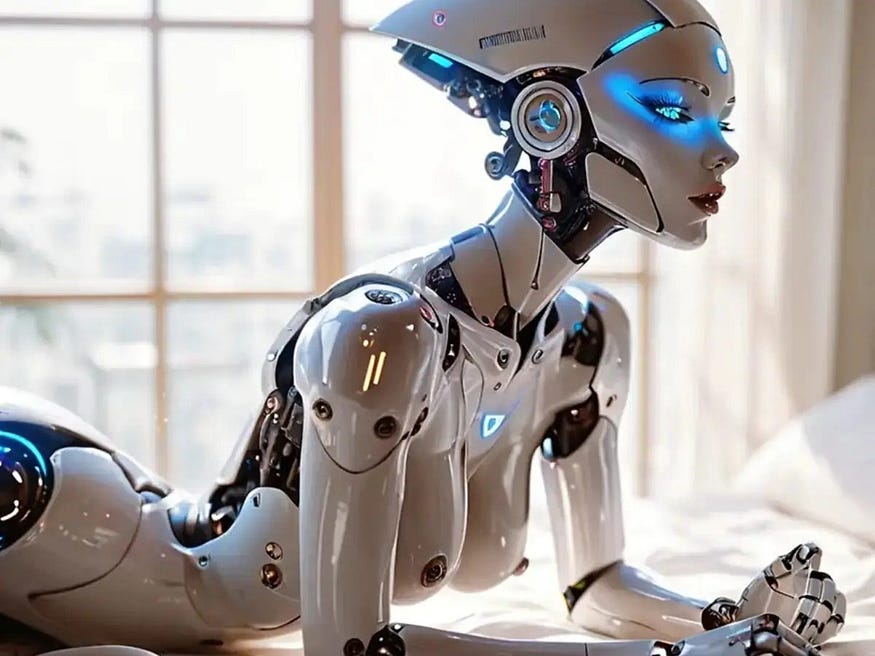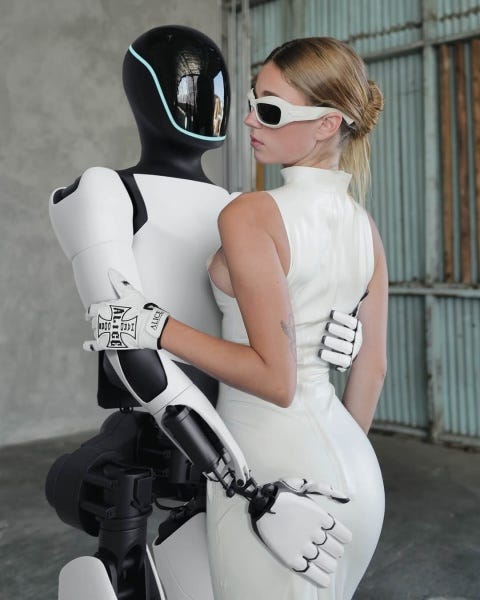They Cut His Dreadlocks Against His Will: The Rastafarian Damon Landor Prison Case Now Before the U.S. Supreme Court
How a Rastafarian man, Damon Landor, with sacred dreadlocks, became the center of a legal battle that could reshape religious rights in American prisons
 This picture is the property of the author, and it was made with an AI program
This picture is the property of the author, and it was made with an AI program
This post can be read in Tocsin Magazine, and all Medium members can read the full article here.
Introduction
Recently, a highly unusual and deeply significant case reached the United States Supreme Court. It raises major questions about the right to practice religion in prison and how the legal system should respond when prison officials violate those rights.
At the center of this case is a Rastafarian man named Damon Landor, who was serving a five-month sentence for drug possession and was transferred to the Raymond Laborde Correctional Center in Cottonport, Louisiana. Washington post
For nearly twenty years, Landor had grown his hair in accordance with his spiritual beliefs. But while in prison, his dreadlocks were forcibly cut off, and his head was shaved bald, despite his protests and despite presenting a legal ruling stating that cutting the hair of Rastafarian inmates violates federal law. Prison officers handcuffed him to a chair, shaved his head, and reportedly crumpled the court ruling and threw it into the trash.
Afterward, Landor filed a lawsuit against the state prison officials under the Religious Land Use and Institutionalized Persons Act (RLUIPA), a federal law passed in 2000 that protects religious rights of people in institutions such as prisons. But lower courts dismissed his case, claiming that RLUIPA does not allow individuals to sue state officials for monetary damages.
Landor appealed, and that appeal is now before the U.S. Supreme Court.
This case is about far more than hair. It is about identity, dignity, faith, and where the boundaries of state power end. NewYorkTimes
A Rastafarian Damon Landor with hair and bald!

Who Are Rastafarians and Why Is Hair So Important to Them?
Rastafarians belong to a religious and cultural movement that emerged in Jamaica in the 1930s. Their beliefs center on the worship of Jah (God), the spiritual and historical significance of Africa (especially Ethiopia) as a homeland or sacred symbol, empowerment of the African diaspora, and the rejection of oppressive systems and cultural norms often referred to as “Babylon.”
There is no single centralized Rastafarian church. Practices vary, but the symbolism and values remain deeply consistent. LionLocs
The Spiritual Meaning of Hair
For Rastafarians, hair, often grown into dreadlocks, is not just a hairstyle. It is a sacred expression of faith, identity, and resistance.
Many Rastafarians refer to the Nazirite vow in the Bible, which prohibits cutting one’s hair as a sacred commitment to God. The story of Samson, who loses his strength when his hair is cut, is often cited as an example of spiritual power residing in uncut hair. To keep the hair natural and unaltered is to remain spiritually connected and pure. LionLocs
Rastafarian hair also expresses rejection of Western (colonial) standards of beauty and social conformity. Keeping one’s hair natural and locked is a visible and intentional rejection of cultural systems that have historically devalued African identity. The dreadlocks are not only personal; they are political and spiritual.

Another strong symbol in the movement is the Lion of Judah, associated with Ethiopian Emperor Haile Selassie I, strength, dignity, and African sovereignty. The dreadlocks are often compared to the lion’s mane, embodying pride, faith, and ancestral connection.
This is why cutting a Rastafarian’s hair is not simply grooming. It is the destruction of a sacred vow, an attack on spiritual identity, and a form of cultural humiliation. LionLocs
Cannabis as a Sacrament and Western Misinterpretations
In Rastafarian practice, cannabis (often called ganja) is a sacred plant used to assist meditation, deepen connection with Jah, and open spiritual insight. Western legal systems frequently criminalize the practice, reducing a religious sacrament to “drug use.”
This misunderstanding fuels cultural tension and legal clashes. The issue is not about recreational use; it is about freedom of religion.
Why the Case of Damon Landor Matters
This case is significant for several reasons.
- First, it concerns the religious rights of incarcerated individuals, especially minorities whose beliefs differ from mainstream religious norms. Landor’s hair was not simply trimmed; it was violently taken, even after he provided legal proof of his right to keep it. His dignity and faith were directly violated.
- Second, the central legal question in the case is whether RLUIPA permits individuals to sue prison officials personally for damages. If the law does not allow that, then officials can violate religious rights without meaningful consequences. As Landor’s attorneys argue: “Without damages, there is no deterrence.”
- Third, the Supreme Court ruling in this case could set a national precedent. With the Court’s current ideological balance (6–3 conservative majority), recent decisions have tended to expand religious protections. If the Court allows damages, the decision will impact thousands of inmates and institutions nationwide. If the Court denies damages, then a gap in religious liberty protections becomes effectively legalized.
- Finally, the case highlights tensions between federal authority and state control, a long-standing issue in U.S. constitutional law.
What Comes Next?
As this case moves forward, the world is watching. What seems like a simple act, cutting someone’s hair, can carry deeply different meanings across cultures and beliefs. To the prison guard, it may have seemed ordinary. To Damon Landor, it was a profound spiritual violation.
Now, the Supreme Court must decide whether religious freedom behind bars is a living right or merely an idea without real protection.
This case will be important to follow. It has the potential to reshape how the U.S. legal system understands dignity, identity, and religious freedom, especially for those society has already pushed to the margins.
The outcome will tell us how seriously America takes freedom of religion when the person practicing it is not free.
Greetings, and until my next article!
Neo77














